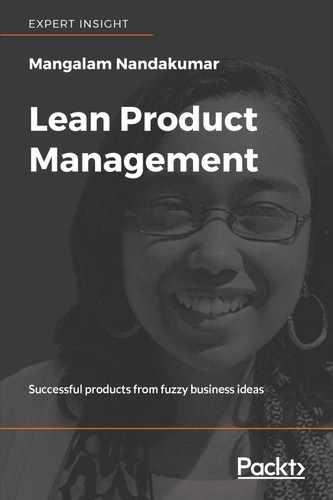Taking a product from poor to good requires effort. For this, we need to validate customer pain points, validate the problem-solution fit, and find a model to monetize our solution. Taking a product from good to great requires a different level of effort. We need to find the best offering that can deliver the most impactful end-to-end experience and meet our key business outcomes. However, trying to take a product from great to perfect can be so hard that it actually slows us down. It's not due to lack of talent, time, or resources. It's mostly because no one knows what perfect is. Perfection sometimes is only an aspirational state. It exists only in our minds.
A typical situation that I have faced in many teams is where we depend on one person's final go-ahead before we release anything to production. This happens in spite of set processes in teams where scope had been agreed upon, designs had been iterated and finalized, and code had been tested to meet acceptance criteria. An hour before launch, the founder, CEO, product head, or key business stakeholder would appear dissatisfied with the visual appeal of a product. You would hear stuff like, "This is not giving a wow effect," or "This is not quite what I was expecting." These kinds of comments could stall everything. Such feedback is neither constructive nor SMART. Additionally, in their endeavor to guide to us toward what will 'wow them,' we end up getting bogged down by opinions, and inspirational examples instead of specific, data-driven insights.
This kind of situation throws teams off balance. The feedback that comes from an important stakeholder carries a lot of weight. Differentiating between an opinion and constructive, actionable feedback, backed by data, is a necessary skill to master, as we discussed in Chapter 11, Eliminate Waste – Data Versus Opinions. Still, teams can do nothing even when they know that what they are hearing is an opinion that an influential stakeholder formed by seeing a shiny new idea somewhere. In trying to even find the rationale behind deciding between pursuing or not pursuing the new idea/recommendation/feedback, teams are using quality time that should be spent building something of value.
Striving for perfection can make us obsessed over details that may not create any additional value for the customer, but serve only to feed our egos. We cannot afford to lose sight of the larger objective of getting the product released. It becomes imperative for the main stakeholders to hold themselves accountable for their feedback. If the main stakeholder reluctantly agrees to release the product as is, and then at every opportunity, makes it a point to let the team know that they should have listened to their opinions or indicates that the product could have been so much better had they followed their last-minute vague inputs, it can create great reluctance in the team to ever want to release anything without approval from the stakeholder.
Amazon's CEO, Jeff Bezos, in his letter to his shareholders, talks about "disagree and commit." He refers to high-velocity decision-making and says, "If you're good at course correcting, being wrong may be less costly than you think, whereas being slow is going to be expensive for sure."
For a business to be able to put out an Impact Driven product, the intent at every stage of decision-making must be to move forward and not stall. To pursue one person's idea of perfection cannot be the prerogative for the product. Teams and leaders must be able to let go of personal opinions and instead focus on the larger goal. Once a decision is taken, teams must commit to enabling the success of the decision. It must not become a team's primary job to convince the stakeholders on every decision about the product. Stakeholders must be accountable and must enable teams to take the product ahead and commit to deliver based on the what we know today. They must be open to course correction as they discover new data. When we do not launch our product and keep improving our product based on every new input we receive, we are missing out on a huge opportunity to learn from our customers and market conditions that are relevant to the nature of our business.
This pursuit of perfection, as an ever-changing goal post, can be counterproductive. It reinforces a cycle of dependency, where the key stakeholders hold the reins on the minute details of the product, and the team is unwilling to proceed without their approval. So how can we fix this tendency to overengineer, and the desire to design for every edge case, and to fix every defect, without understanding the larger context? Let's dwell on this for a moment and think about the other reasons for process wastes in our teams. The solutions to eliminating these process wastes form the latter half of this chapter.
